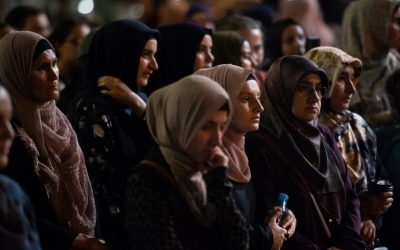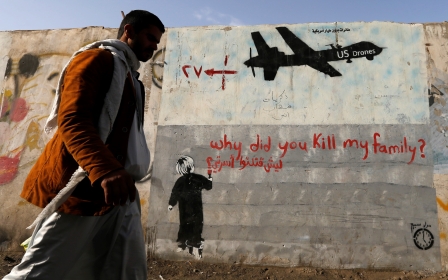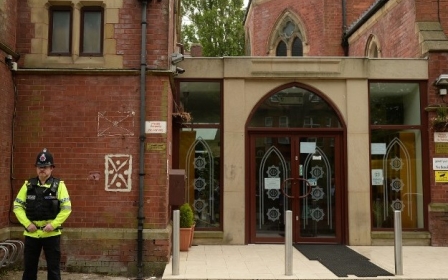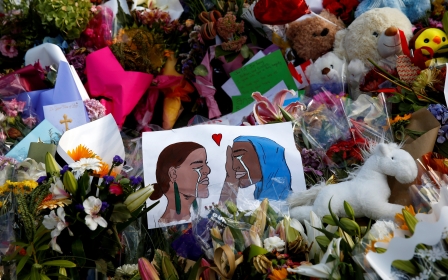The violence of Islamic State, al-Qaeda and white nationalists is similar. The causes aren't
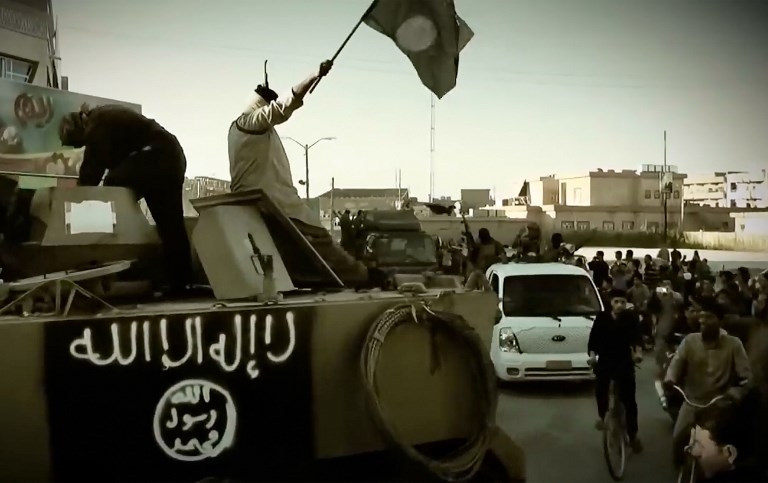
On 15 March, a white nationalist terrorist killed 50 Muslims in two mosques in Christchurch, New Zealand.
Many commentators said the attack was similar to the type of violence committed by groups like al-Qaeda and Islamic State group (IS) that for decades has resulted in spectacular sporadic violence around the globe.
While nationalists aim to die for their nation and jihadis for their faith, the two are now described as mirroring each other in their brutality and savagery.
We may be witnessing what French philosopher Rene Girard called contagious mimetic violence, in which all our desires and acts, especially violent ones, are borrowed from others. The act of killing becomes a strategy to re-establish peace and an imagined order, in which the killer's group feels triumphant and victorious.
Old and new terror
New MEE newsletter: Jerusalem Dispatch
Sign up to get the latest insights and analysis on Israel-Palestine, alongside Turkey Unpacked and other MEE newsletters
Yet, we should be careful in seeing fundamental similarities between old and new forms of terrorism to satisfy our quest to explain attacks that might appear similar, but have very limited common causes.
The most obvious common thread between the old and the new is indiscriminate killing by non-state actors who rely on the internet to spread messages of hate, conspiracy and violence against a vilified other. In both types, an eternal battle between "us" and "them" can only be resolved by killing or maiming the other, wherever they are.
The quest to eliminate the other through violence is seen as an act of salvation for their faith, race and country
Targets can include places of worship, schools, shopping centres, financial buildings, etc. Both types of terrorists subscribe to a simple historical narrative in which victimisation is paramount. The quest to eliminate the other through violence is seen as an act of salvation for their faith, race and country.
Both use new communications technologies, such as the internet, to recruit and spread their ideologies. They document their savage violence against innocent people, informing the world why and how they kill.
But the comparison stops there, and we should resist seeing what happened in New Zealand as a replica of the violence of al-Qaeda or IS - even though simple, comparative statements denouncing terror by all, and finding common ground, can be tempting.
Retreating into theology
Violence by al-Qaeda or IS came to haunt us after freelance fighters were used to pursue short-term geopolitical goals. When the Soviet occupation of Afghanistan ended, there was no exit strategy, rehabilitation programme or containment policy for the militants who had done the fighting.
Jihadis spread around the world, with many returning to their home countries feeling like outcasts - used for a goal and then condemned to prison cells. They retreated into their theology books to find justifications for a new round of terror against those who betrayed them.
They jumped on the grievances that many felt came about as a result of centuries of a power imbalance between Muslims and the West. They found fertile ground in which to plant the seeds of hate against the aggressor, the West, which had spared no opportunity to continue its long history of humiliation, occupation and bombardment.
They mobilised fellow Muslims by promising new glory and civilisational regeneration. Their discourse empowered others who felt the same humiliation. But in reality, their terror became the cause of further acts of violence against their own communities in Muslim-majority countries and among Muslim minorities in the West. They cheered the killing of infidels, but their fellow Muslims paid a high price for the acts of this violent minority.
Strengthened by the West
If al-Qaeda was the result of a global so-called "jihadi" project gone astray after Afghanistan, the violence of IS in Syria and Iraq can only be understood in the context of the 2003 occupation of Iraq and the 2011 Syrian uprising.
The savagery of IS had an added sectarian component, the direct result of the ethnic and sectarian tensions in both countries and the interventions of Western and Arab forces aiming to reshape them. IS mobilised a minority by raising the flag of the "Caliphate," a recruitment symbol promising the restoration of the glory of a bygone era. Killing became a sacrificial strategy to reinvent the past, with all its civilisational splendour, power and respectability.
White supremacists seek the same glory, but the context that has strengthened them in recent years is the West itself. White men whose job opportunities and futures have been thwarted by a loss of control are the typical terrorists. They have lost their jobs not because Muslims have settled in their midst but because corporations went global, seeking cheap labour and production abroad.
They lost their so-called "Christian family values" and succumbed to the pressures of accepting abortion and other social changes not because Muslims were avid supporters of such innovations, but because their own people had campaigned for new definitions of self and others.
While they think there is an imminent apocalypse spurred by Muslim or immigrant "invaders," in reality, the political, economic and cultural changes in the West are separate phenomena.
Justifying genocide
In the discourse of white nationalist terrorists, to restore the white, "pure" nation, Muslims should be eliminated - either literally, or by preventing them from establishing homes in the West. The Nazis did exactly that when their own declining fortunes led them to kill millions of Jews, homosexuals, gypsies and others deemed unfit to belong to the white nation.
Fortunately, Muslims have never mastered the art of the concentration camp or the total elimination of faith groups (although in the name of a distorted and extreme version of Islam, IS attempted genocide against the Yazidis). This was a Western invention, a direct product of bogus scientific reasoning that classified races and plotted them on an evolutionary scale, from the savage to the civilised.
Governments must address their own crises without blaming an imaginary Muslim invasion
In its most horrific manifestation, it led to the extinction of native populations around the world. When it became "charitable," it led to a "civilising" mission that justified imperialism and colonialism, occupying vast lands belonging to the "savage" others, and hoping to eliminate their differences and turn them into "people like us," albeit of a lower status.
Despite the apparent similarities between al-Qaeda or IS and white nationalist violence, the causes and contexts are very different. To deal with the first, Western governments must reconsider their foreign policies in the Muslim world, respecting the sovereignty of non-western territories.
Recognising occupation as a fait accompli, such as US President Donald Trump's recent statement on the Israeli-annexed Golan Heights, is not the way forward.
To deal with the second menace, governments must address their own crises without blaming an imaginary Muslim invasion.
Such changes pose serious challenges for policymakers. Yet, while policing and surveillance strategies may be the same, dealing with the roots of each problem requires a deep understanding of their causes, with a goal to save us all from a menace that may not go away anytime soon.
The views expressed in this article belong to the author and do not necessarily reflect the editorial policy of Middle East Eye.
Middle East Eye delivers independent and unrivalled coverage and analysis of the Middle East, North Africa and beyond. To learn more about republishing this content and the associated fees, please fill out this form. More about MEE can be found here.



